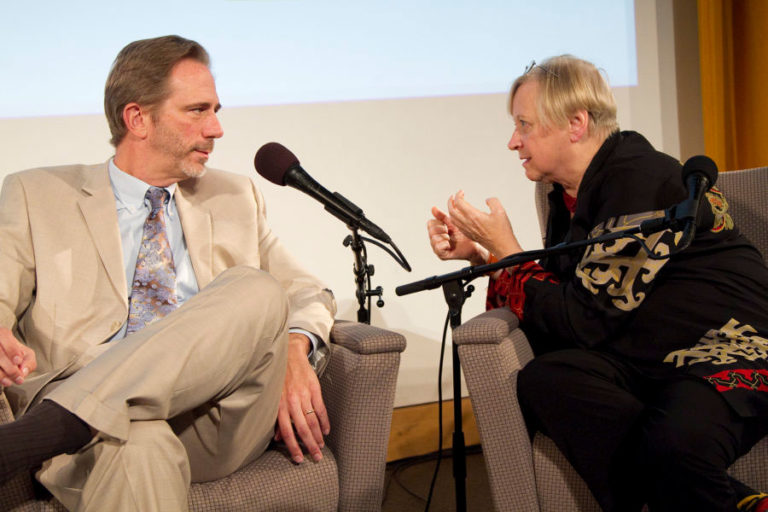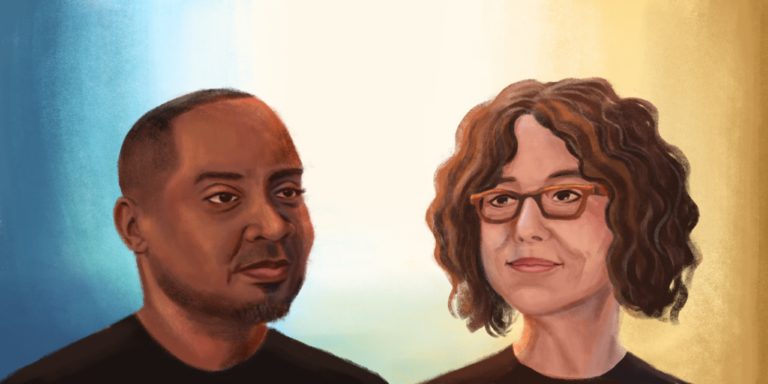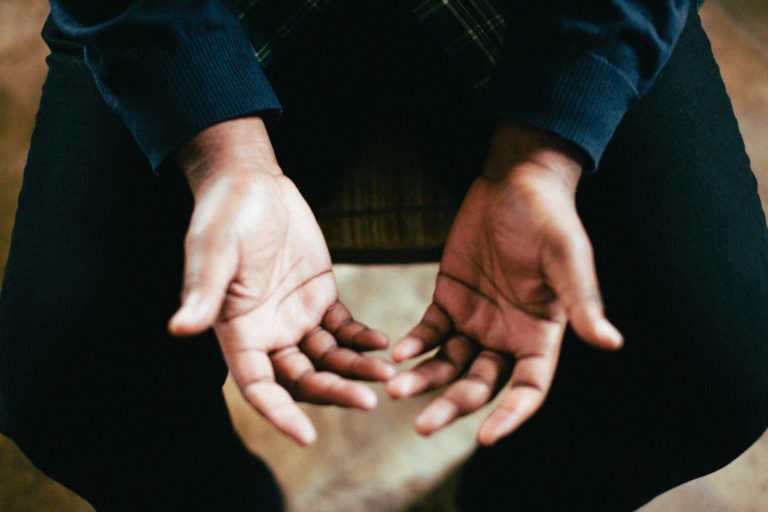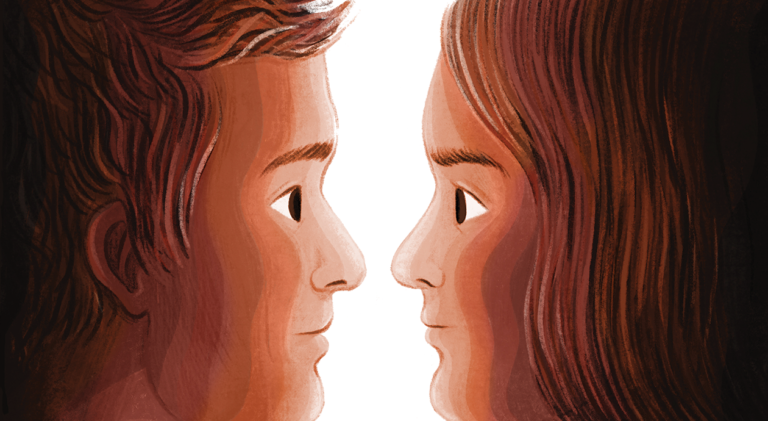No issue is more intractable than abortion. Or is it? Most Americans fall somewhere between the absolute poles of “pro-life” and “pro-choice.” A Christian ethicist who advocates a “consistent ethic of life” and an abortion-rights activist reveal what they admire in the other side and discuss what’s really at stake in this debate.

Dialogue, Modeled
What it looks (and sounds) like when two people engage common life, even in the absence of common ground. Part of The Civil Conversations Project.
Illustration by Elise Vanderplanke.
December 10, 2020
Bishop Michael Curry & Dr. Russell Moore
Spiritual Bridge People
We’re in a tender spiritual moment, widely feeling our need for re-grounding both alone and together. By way of the Almighty force of Zoom, Krista engages a forward-looking conversation with two religious thinkers and spiritual leaders from very different places on the U.S. Christian and cultural spectrum: Episcopal Bishop Michael Curry and Russell Moore of the Southern Baptist Convention. Through their friendship as much as their words, they model what they preach. The Washington National Cathedral and the National Institute for Civil Discourse brought us all together.
August 19, 2021
Robin DiAngelo and Resmaa Menakem
Towards a Framework for Repair
Through the ruptures of the past year and more, we’ve been given so much to learn, and callings to live differently. But how to do that, and where to begin? Resmaa Menakem’s book, My Grandmother’s Hands, and his original insights into racialized trauma in all kinds of bodies, have offered new ways forward for us all. So we said yes when Resmaa proposed that he join On Being together with Robin DiAngelo. She has been a foremost white voice in our civilizational grappling with whiteness. This conversation is not comfortable, but it is electric and it opens possibility.
October 20, 2016
David Brooks + E.J. Dionne
Sinfulness, Hopefulness, and the Possibility of Politics
This is a strange, tumultuous political moment. With columnists David Brooks and E.J. Dionne, we step back from the immediate political gamesmanship. We take public theology as a lens on the challenge and promise we will all be living as citizens, whoever our next president might be. This public conversation was convened by the John C. Danforth Center on Religion and Politics at Graham Chapel at Washington University in St. Louis, the day before the second presidential debate on that campus.
The tensions of our time are well-known. But there are stories that are not being told, because they are not violent and not shouting to be heard. One of them is that all over this country, synagogues and mosques, Muslims and Jews, have been coming to know one another. There is friendship. There are initiatives that are patiently, and at human scale, planting the seeds for new realities across generational time. As part of the Civil Conversations Project, a live conversation at the Union for Reform Judaism’s General Assembly in Boston between Imam Abdullah Antepli and Rabbi Sarah Bassin.
It’s hard to imagine honest, revelatory, even enjoyable conversation between people on distant points of American life right now. But in this public conversation at the Citizen University annual conference, Matt Kibbe and Heather McGhee show us how. He’s a libertarian who helped activate the Tea Party. She’s a millennial progressive leader. They are bridge people for this moment — holding passion and conviction together with an enthusiasm for engaging difference, and carrying questions as vigorously as they carry answers.
February 2, 2017
Chuck Colson, Greg Boyd, and Shane Claiborne
How to Be a Christian Citizen: Three Evangelicals Debate
To be Evangelical is not one thing, even on abortion. This conversation about Christianity and politics with three generations of Evangelical leaders — Shane Claiborne, Greg Boyd, and the late Chuck Colson — feels more relevant in the wake of the 2016 election than it did when we first recorded it. We offer this searching dialogue, which is alive anew, to a changed political landscape.
Human to human, if you take a moment to be with somebody, to understand the pains they’re going through, you get to transform yourself.
December 6, 2018
Rebecca Traister and Avi Klein
#MeToo Through a Solutions Lens
What we are naming with the impetus of #MeToo is, at best, an opening to a long-term cultural reckoning to grow up humanity; to make our society more whole. We explore this with psychotherapist Avi Klein, who works with men and couples, and feminist journalist Rebecca Traister. In a room full of journalists, at the invitation of the Solutions Journalism Network, we explored how to build the spaces, the imaginative muscle, and the pragmatic forms to support healing for women and men, now and in time.
October 11, 2018
Sally Kohn and Erick Erickson
Relationship Across Rupture
“People believe things that are mutually contradictory; I think we all do. I know I do.” — Erick Erickson
Earlier this year, the University of Montana invited On Being to attempt an outside the box civil conversation between two political pundits on contrasting ends of the U.S. political spectrum. It became a sold-out, public event in the spirit of Montana’s Senator Mike Mansfield, who famously modeled integrity, courage, and humility across the partisan aisle in the tumult of 1960s and 70s. Sally Kohn and Erick Erickson are both controversial, lightning-rod figures, yet neither of them fits neatly into a partisan mold. The reaction of the youngest people in the room is what compelled us to put this on the air. They said they had not witnessed or imagined a political conversation like this possible: one marked at once by bedrock difference — and good will, humor, and a willingness to bring our questions as well as our arguments, our humanity as well as our positions, into the room, if only for an evening.
Search results for “”
View
- List View
- Standard View
- Grid View
Filters




